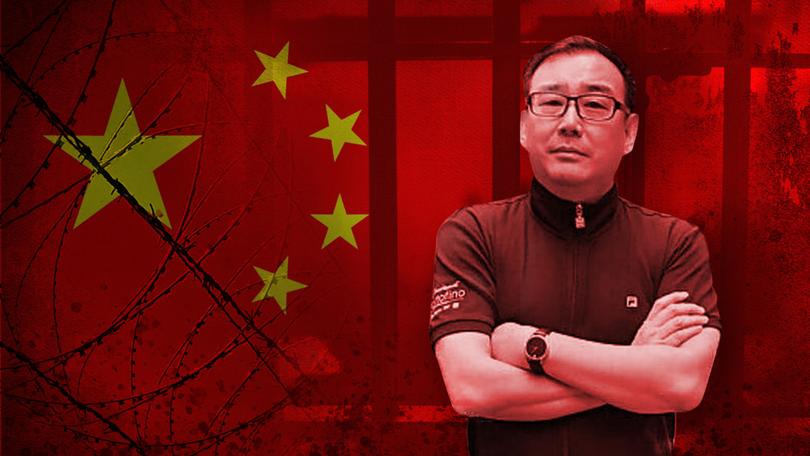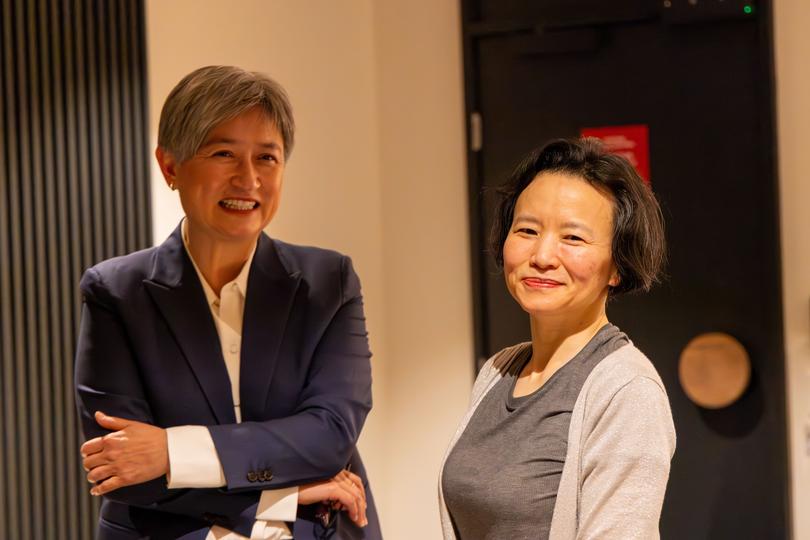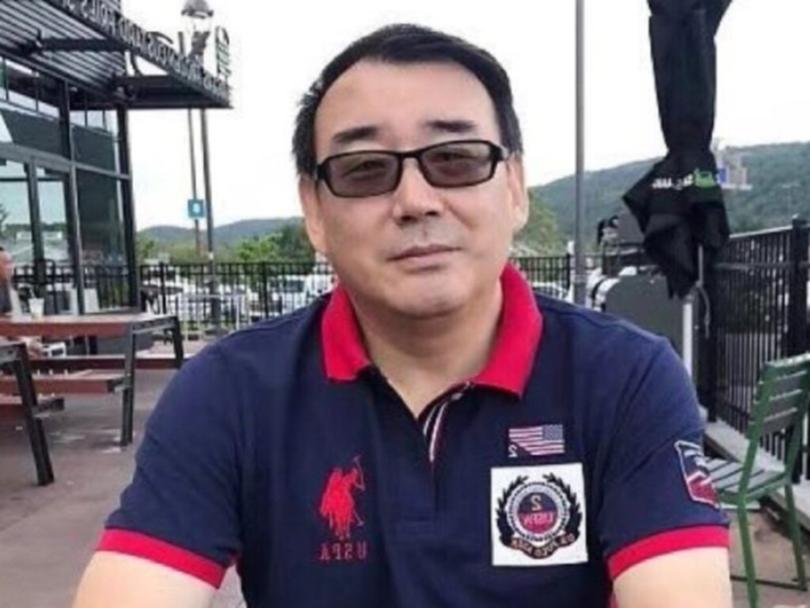Yang Hengjun’s sentence and how ambitious spies may have dealt a major blow to Australia-China relations
The Australian-Chinese writer’s sentencing this week has likely sent a chilling message to those in Canberra banking on a thaw in relations with the Asian superpower.

Just weeks after she was released from a Chinese prison, Australian journalist Cheng Lei was ready for a party.
Presenting on stage at Sydney’s Roslyn Packer Theatre at a media awards night last November, she channelled unabashed joy as she charmed the crowd and celebrated what she called her first night out on the town.
Somehow able to joke about her harrowing experience – three years in confinement for breaking an embargo on a government report by a few minutes, the long absence from her young children’s lives – the former China-based broadcaster chuckled as she described her imprisonment as an undercover reporting assignment that went far longer than intended.
Sign up to The Nightly's newsletters.
Get the first look at the digital newspaper, curated daily stories and breaking headlines delivered to your inbox.
By continuing you agree to our Terms and Privacy Policy.But fast forward to February 5, and Ms Cheng’s demeanour was the polar opposite, as she addressed the stunningly harsh suspended death sentence China had imposed on Australian writer, pro-democracy activist and father of two, Dr Yang Hengjun.
“I had been in the same facility, a few metres away, waiting the same agonising wait,” she told her new employer, Sky News.
“I really can’t offer platitudes. This is not a headline, it’s someone’s life, as well as that of his family.”
The sentence for Dr Yang, who was arrested in 2019 and faced a closed trial on espionage charges he denies, was “very, very difficult”, she said.
While this is no doubt true to those who know Dr Yang, it’s also true for the Australian federal government, which had recently been celebrating the thawing of relations between Canberra and Beijing following the tumultuous years of a COVID-era trade war that cost Australian exporters upwards of $20 billion.
For Penny Wong the strain of this new disaster was clear. The typically undemonstrative foreign minister’s annoyance was clear as she declared that she was “appalled” by Dr Yang’s sentence.

She also revealed the delicate nature of her diplomatic tightrope with her repeated references to “a decision of the Chinese legal system” rather than President Xi Jinping’s government.
These references reflect an understanding of the growing power of China’s security services, according to Lowy Institute senior fellow for Asia, Richard McGregor.
“The Ministry of State Security doesn’t really care about relations with Australia. And in fact, they may be happy to have dealt the harshest sentence possible, because it sends a message around the world that this is how things are done in China,” Mr McGregor told The Nightly.
“This ministry used to be very secretive, but they now have a much more high profile role, with their own social media, and their talk about attacking America. They are running the case and they are not interested in the stabilisation of relations with Australia.
“What this is about is a hardening of anti-espionage efforts across China, where you see a lot of foreign companies being raided. That’s a manifestation of the growth of the state security and the tightening of espionage measures.”
And while the Chinese ambassador was summoned by Wong for a dressing down in Canberra, there were no immediate plans to recall our ambassador to Beijing or indications a mooted visit this year from a senior Chinese figure would be canned.
Professor Bing Ling, a Chinese law expert from the University of Sydney, said the level of secrecy around Dr Yang’s case was high, even given the usual opacity of China’s legal system. And the fact that Australia’s requests for information from the most senior levels of government were being met with silence did not bode well.
“Usually in this kind if context you would expect a report giving some details of the charge and the reasons for the sentence. This has not happened yet and it would be quite extraordinary if this silence should continue,” he said.
He said part of the reason for the secrecy - and the harsh punishment meted out - could be the fact the Dr Yang himself was previously employed by China’s spy service, having been posted overseas in the late 1990s before resigning from his role with the State Security Ministry.
“Dr Yang has an unusual background,” Prof Ling said.
“A big question is could his previous engagement with the central nervous system of the Chinese government, the spy agency, be a major factor in why he’s being punished now?

“If we could see the judgement from the courts that would be the only way for us to get this answer.”
But in the meantime, the only fragile lines of hope remaining for Dr Yang were the slim potential of medical parole, where foreign prisoners have been sent overseas, or the commutation of his sentence to life or 25 years in prison should he be of good behaviour for the next two years.
“An appeal is possible, but in practical terms an appeal would be futile,” he said.
“A case like this would be decided by the Chinese Communist Party and one this prominent would be decided by its most senior ranks.”
Aside from the human story behind what security expert Justin Bassi described as “hostage diplomacy”, the case also has broader economic risks if relations with our biggest trading partner worsen again. That includes the rivers of Australian wine at stake with the Chinese tariffs that could potentially be lifted in March.
Ms Cheng’s on-stage ebullience on being released was matched by that of Anthony Albanese just days later in November when he became the first Australian PM to visit the Asian super power since 2016. At that time he was celebrating the “constructive dialogue” with Beijing.
“This was a point where the relationship moved forward, where dialogue occurred in a way that was respectful,” Mr Albanese said at the end of that visit.
As an already gravely ill Dr Yang weighs up whether or not to appeal his sentence - an option with extremely limited likelihood of success given China’s closed courts and the political nature of his conviction - Australia’s foreign minister faces one of her toughest professional and personal challenges.
And all of this without addressing the fraught and growing tensions of China’s military expansion in the Pacific and South China Sea.
It’s a time to tread very carefully indeed.

